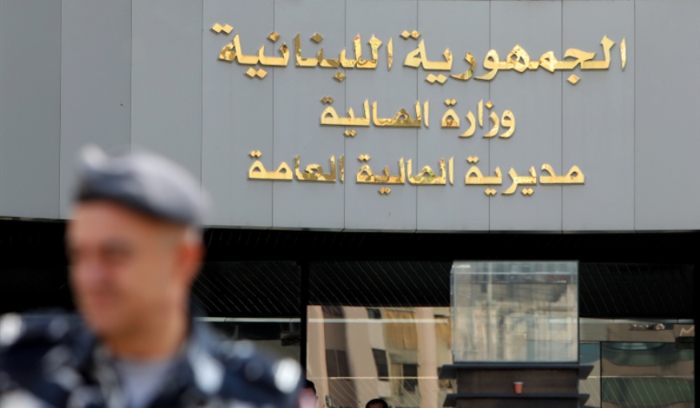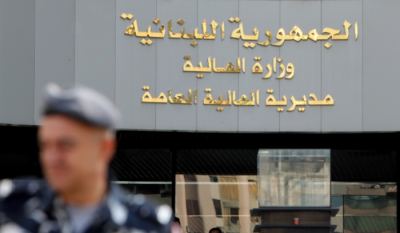The draft budget for 2024 is moving towards dollarizing revenues and collecting them in fresh dollars, including the introduction of new taxes, with a deficit reaching 13.8%. This may secure the treasury foreign currency revenues, but its danger lies in eliminating the Lebanese currency, making the entire country more dependent on the dollar. Such an economy requires a continuous flow of foreign currency, especially given the excessive reliance on imports. Lebanon will no longer be a captive of inflows but rather a captive of the dollar.
The expected revenue in the 2024 budget draft is around 300.5 trillion Lebanese pounds (3.3 billion dollars), against expenditures of 258.7 trillion Lebanese pounds (2.9 billion dollars), resulting in a deficit of 41.6 trillion Lebanese pounds. According to estimates from the International Monetary Fund, the GDP is projected to reach approximately 18.2 billion dollars in 2024, meaning public expenditures will represent 18.1% of GDP, compared to 16.6% in the previous year.
The first crime in this project is raising the value-added tax to 12% starting January 1, 2024. The second is that it institutionalizes the collection of bribes in the public administration by introducing what is termed "rapid and emergency service fees" to process transactions on the same day or within three days, allowing a distribution of the collected amounts to relevant administrative staff, another administration, and 20% to the treasury. This fee means that political forces refuse to correct wages and instead legislate bribery.
Under this budget, the collection of fees and dues in foreign currency will be legalized after the Lebanese pound was the sole official currency in most state dealings with tax payers, provided that the Central Bank determines the "pricing," i.e., the exchange rate. This will be mandatory in cash dollars for the following taxes and fees:
- Shares and profits due to the Lebanese state from the extraction and sale of oil and its derivatives, and casino revenues in foreign currency, as well as the state's share from partnerships with the private sector.
- The tax due under the provisions of Article 51 of Law 497, concerning the payment of interest tax.
- The tax due on foreign movable capital revenues.
- Taxes and fees due on companies with petroleum rights and operating petroleum companies.
- Departure fees for travelers by sea and air in US dollars.
- Consular fees.
- Customs fees.
- Internal consumption tax upon importation.
- Fees collected by Electricité du Liban.
- Airport fees.
- Value-added tax due on airport fees.
- All port fees.
- Value-added tax paid by tourists to contracted shops with the Ministry of Finance for their purchases within Lebanese territory, requesting refunds per specific refund provisions.
- Residency fees for work permit holders across all categories, including artists, musicians, and residency cards, among other fees and fines collected by the General Directorate of General Security, to be collected in US dollars pursuant to a decree to be issued by the cabinet.
The first crime in this project is that it raises the value-added tax to 12%. Employers must now pay the tax due in the same currency as that paid to the worker. The budget also includes amendments to existing taxes related to patents and moral rights, as well as to income taxes imposed on trademarks and intellectual, industrial, literary, artistic, and commercial property, which means an increase in tax values in line with the provisions of the 2023 budget that raised taxes multiple times.
New taxes have been introduced that did not previously exist, such as a fee for every request for an engineering practice permit, fees for specific reviews and requests, and a fee for every request for recognition of academic studies or degrees and their equivalency. Additionally, a financial stamp fee has been created for every application submitted by a private higher education institution for a course review or material transfer, along with a financial stamp for document copies or any required document for a colloquium application or for recognition of academic degrees and studies.
As taxes and fees on education continue to be introduced, a fixed fee has been granted to judges for each case of divorce, separation, and marriage validation, among others. The strangest and most notable tax in this draft budget is the consumption tax for environmental preservation. Tables have been added including most goods imported by Lebanon from abroad, subject to a collective tax starting at 0.10% of the import value and reaching up to 0.40%.
With these increases, the value of internal fees on goods and services, and the yields from property taxes, public administration, and income and profit taxes will double. The yield from value-added tax is expected to increase from 36 trillion to 90 trillion Lebanese pounds. This budget, of course, has not yet acknowledged that it owes debts to Eurobond holders to include them in the budget, nor does it admit that it has losses resulting from restructuring the Central Bank, and that the economic base for imposing these taxes and fees has become narrow and primarily relies on revenues from abroad, whether in the form of expatriates' remittances or aid from organizations, parties, and countries.




